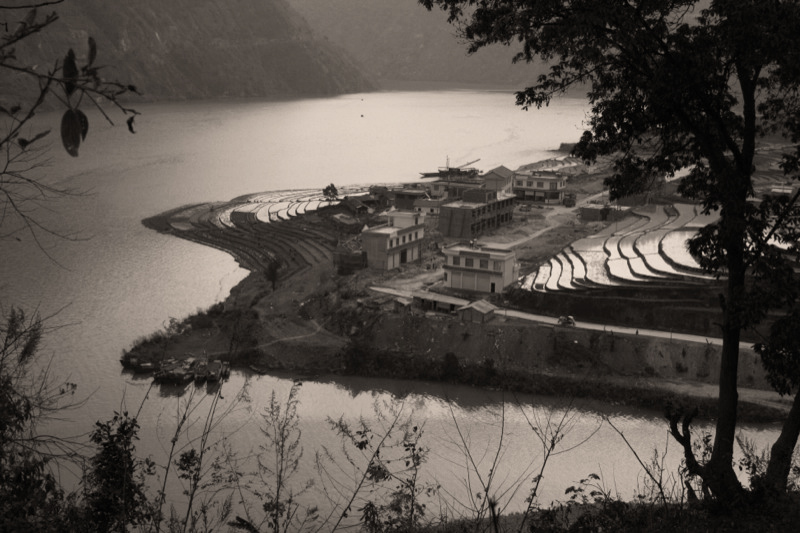Every time I read about what happened today in missions history, it excites me to see the bigger picture, the overall narrative of what God has been doing to reach every nation. God has called simple men and women throughout history to leave a mark of his glory upon his storyline, which leads us to right here, right now, wherever we are.
David said, “All the days ordained for me were written in your book before one of them came to be.”
Now, with simple faith, let us go too, leaving a mark of righteousness for generations to come.
Here’s a look back through the years at what happened in missions history in the month of April.

April 1, 1999 — The number of religious groups and institutions required by Russian law to re-register with government authorities by December 31, 1999 is about 17,000. However, on this day a prominent Russian expert revealed on this day at a briefing for American diplomats, religious leaders, and Russian officials that, between 1997 and the of February 1999, only 300 have completed their paperwork. Characterizing the reregistration as “a logistical nightmare” for the bureaucracy, the expert predicted that the task will not be completed and that most of the religious groups will be left in legal limbo.
April 2, 2003 — The Russian Evangelical Alliance, which had been inactive for nearly a century, is re-established at a meeting near Moscow. The representatives of about 40 churches, organizations, associations, missions and local alliances. The delegates agreed to designate an annual prayer week, organize joint Bible conferences and evangelistic campaigns and to establish various social and political programs.
April 3, 1988 — A Wesleyan-Holiness denomination of 39 churches which had sprung up in the 1940s in Nigeria formally united with the international Church of the Nazarene. The Nigerian group had already adopted the name Church of the Nazarene because it had based its doctrinal statements on those in a Manual of the international Church of the Nazarene.
April 4, 1923 — It’s the birthday of the missionary scholar William Smalley. As a missionary in the hills of Laos, Smalley helped develop a way to write the Hmong language using the Roman alphabet. It’s still the standard way to write Hmong.
April 5, 1885 — On this Easter Sunday, Methodist missionary Henry G. Appenzeller, along with Presbyterian missionary H.G. Underwood, arrived in Korea in order to “bring the Korean people to the light and liberty of God’s children”. One month later another American Methodist missionary, W. B. Scranton, came to Korea with his mother, Mrs. Scranton.
April 6, 1947 — The Lutheran Hour begins broadcasting in Brazil.
April 7, 1541 — On his thirty-fifth birthday, Francis Xavier, co-founder of the Society of Jesus (Jesuits), sets sail from Lisbon, Portugal, for Goa, India. The first Roman Catholic missionary there, he also traveled to Japan, Sri Lanka, and other Asian countries. It is hard to say how many would eventually be converted under Xavier’s preaching. While reports go as high as 1 million, modern scholars peg the actual number at around 30,000.
April 8, 1901 — After nearly 30 years of successful church planting in New Guinea, Presbyterian missionary James Chalmers (accompanied by missionary Oliver Tomkins, who had just arrived in the field) sets out to explore a new part of the islands. No one ever saw the two again. A rescue party learned the men had been clubbed to death and eaten by cannibals. When London preacher Joseph Parker heard the news, he exclaimed, “I do not want to believe it! Such a mystery of Providence makes it hard for our strained faith to recover. Yet, Jesus was murdered. Paul was murdered . . . I cannot but feel that our honored and noble-minded friend has joined a great assembly.”
April 9, 1934 — Louisa Lee becomes the very first missionary assigned under the Independent Board for Presbyterian Foreign Missions. Although she had already served in India for more than two decades under the Board of Foreign Missions of the Presbyterian Church in the USA, Lee severed her connections with that Board as a protest against its modernism. Louisa Lee would eventually give 59 total years of missionary service to India.
April 10, 1912 — Annie Funk, 37, veteran Mennonite missionary to India sails out of England headed for the U.S. on the Titanic. A telegram had called Annie Funk home from India to visit her seriously ill mother. When the Titanic went down on April 15, Annie Funk was among 1500 passengers who lost their lives. She actually had a seat in a lifeboat but chose to give it up for another passenger. Her name appears on the missionary plaque in Sage Chapel on the Northfield Mount Hermon school campus where she attended. The school she founded in Janjgir was renamed the Annie C. Funk Memorial School.
April 11, 1933 — J. Gresham Mecham formally asks the Prebyterian Board of Foreign Missions to allow only those who held to historic Christian doctrine to serve on its board and to be sent as missionaries, and to avoid doctrinally compromising union enterprises. In the days of debate which followed, Mecham’s position was rejected and, as a result, American Presbyterians split.
April 12, 1850 — Adoniram Judson, pioneer Baptist missionary to India and Burma, dies during a sea voyage. He and his wife, Ann, were the foremost American missionary heroes of their day.
April 14, 1775 — The birth of John Philip, Scots Congregationalist, who went to South Africa in 1819 to direct the work of the London Missionary Society. Even though 150 years would pass before the apartheid system would be dismantled, Philip saw that the discrimination it represented was contrary to God’s Word. Philip’s burden was for the African church to be truly African.
April 15, 1889 — Belgian Roman Catholic priest Joseph Damien, a missionary to lepers on Molokai, Hawaii, dies from the disease.
April 16, 1944 — Dorothy Ahleman feels a call to missions at an evening missions service on the campus of Olivet Nazarene College. She went to Argentina and served 37 years.
April 17, 1937 — With Mussolini’s troops occupying Ethiopia, Sudan Interior Mission missionaries who had started a small church among the Wallamo tribe are forced on this day to leave the country. “We knew God was faithful,” one missionary wrote, “but we wondered if we ever come back, what will we find?” When the missionaries returned six years later (July, 1943) they would find that, despite severe persecution by Italian soldiers, the Christian community had grown from 48 members to 18,000.
April 18, 1942 — Sixteen B-25 bombers took off from the USS HORNET, the first fully loaded bombers ever to take off from an aircraft carrier. The daring bombing run over Japan was to be a United States’ answer to Japan’s attack on Pearl Harbor four months earlier. After dropping their explosives on Japan, most of the bombers crash-landed in China after running out of fuel, some in Japanese held areas. Jacob D. DeShazer, a bombardier on one of those planes, spent three and a half years in a Japanese POW camp. After the war, he returned to Asia and served for 30 years in Japan and China as a missionary.
April 19, 1997 — Betty Greene dies. Betty was a Women’s Air Force Service pilot during World War II. Although many felt women did not belong in the military, because of staffing shortages, women were admitted to the Air Force. After proving herself as a military pilot, Betty founded the Christian Airmen’s Missionary Fellowship in 1945. Then, she was asked by the Wycliffe Bible Translators to help with their Mexico jungle camp program. This was the start of 15 years of service in places like Peru, East Africa, and Sudan. When Betty retired from flying, she settled in Fullerton, California to represent the mission, recruit new pilots and work as prayer secretary.
April 20, 2001 — A Peruvian Air Force aircraft shot down a private airplane carrying an American missionary family and their American pilot in northern Peru near the Colombian border. The plane was heading to the Peruvian town of Iquitos, having earlier departed from the town of Leticia in Columbia. It was mistaken for an airplane transporting contraband drugs. Of the four family members, the mother and infant daughter were killed. The father and son were not injured, while the pilot was wounded in the leg.
April 21, 1783 — Samuel John Mills, missionary and founder of American Bible Society, was born in Torringford, Connecticut (d. 1818). He was the father of the foreign missionary movement in America and made a number of exploratory tours in the south and central west parts of the United States as well as working in Sierra Leone (Africa) and exploring the country for the Liberia Colony (in 1818).
April 22, 1951 — John L. Peters was the guest speaker at St. Luke’s United Methodist congregation in Oklahoma City, Oklahoma. When he got up to preach, he began by saying that he had decided not to preach his prepared sermon. Instead, in an impromptu, God-inspired message, Peters challenged the congregation to answer the worldwide needs of the “disinherited, the exploited, the poverty-stricken of soul and body.” Peters suggested a program of self-help, one “humbly administered, recognizing that what men need and want are not always what we think they need and want. This must be a cooperative enterprise — a sharing rather than a giving.” After that powerful sermon, several church members stayed around and offered funds to create just such an organization. In 1952, World Neighbors would be launched as a non-profit organization. Programs would begin first in India and then wind up touching more than 45 countries in Asia, Africa and Latin America. Those World Neighbors programs have become a planning model for grassroots community self-help organizations.
April 23, 1858 — Horace Newton Allen, missionary to China and Korea, was born in Delaware, Ohio (d. 1932). He was a diplomat and served as a Presbyterian medical missionary. He was educated at Ohio Wesleyan University (Delaware, Ohio) and Miami Medical College (Miami, Ohio) before becoming a missionary in 1884. He saved the life of a prince and others in a revolution. He then served as the medical officer to the Korean Court and is considered the pioneer Protestant missionary to Korea. He held various government positions and is the author of a number of books on Korea.
April 24, 1982 — William Cameron (“Uncle Cam”) Townsend died. He was the founder of one of the world’s largest privately funded mission agencies, the 4,500 member Wycliffe Bible Translators. Born in 1896, Townsend was a missionary linguist for 65 years, beginning in 1917 when he started as a 21-year-old Bible salesman. Wycliffe Bible Translators works among nearly 750 minority language groups.
April 25, 1799 — Ephraim Weston Clark, missionary to Hawaii and Micronesia, was born in Haverhill, New Hampshire (d. 16 July 1878). Clark, a graduate of Dartmouth College and Andover Theological Seminary, was sent by the American Board of Commissioners for Foreign Missions to the Sandwich Islands (Hawaii), arriving there March of 1828. Among his missionary endeavors was work on Bible revisions and translation of a Bible dictionary. In 1852, he also helped initiate mission work in Micronesia.
April 26, 1832 — Just five weeks after arriving in Ghana, Dr. Christian Frederich Henize dies of malaria. Ironically, he had been charged with caring for the medical needs of two other missionaries in whose company he had arrived. These three men were the second group of missionaries sent to Ghana by the Basel Missionary Society. The deaths of both groups of missionaries before they had a single convert led the Basel Missionary Society to temporarily withdraw from Ghana.
April 27, 1775 — Moravian minister and missionary Peter Boehler dies. He had met John Wesley in 1737 in the aftermath of Wesley’s unfruitful time in Georgia as a missionary to the Indians. Boehler’s assurance of faith and belief in joyous, instantaneous conversion left a permanent mark on Wesley. At the time of his death Boehler was on his way to Georgia and Carolina as a missionary to the blacks and Indians.
April 28, 1841 — Warriors enter the hut of French Catholic missionary Peter Chanel on Futuna in what is now Vanuatu (South Pacific islands). Clubbing the missionary to death, they cut up his body with hatchets. This happened because of a pagan chief’s anger over his son asking forbaptism. Peter’s violent death would spark conversions across the entire island.
April 29, 1819 — Eduard Raimund Baierlein is born in Sierakowski, Posen, Poland. He was a missionary to the Chippewa (Ojibwa) Indians in Michigan from 1847 to 1853. Then he went to India as a missionary for the Leipzig Evangelical Lutheran Mission, arriving in Madras in December 17, 1853.
April 30, 1595 — The death of Abraham George, the first of eight Roman Catholic Jesuit martyrs in Ethiopia.
Article by Howard Culbertson. For more original content like this, visit: http://home.snu.edu/~hculbert


